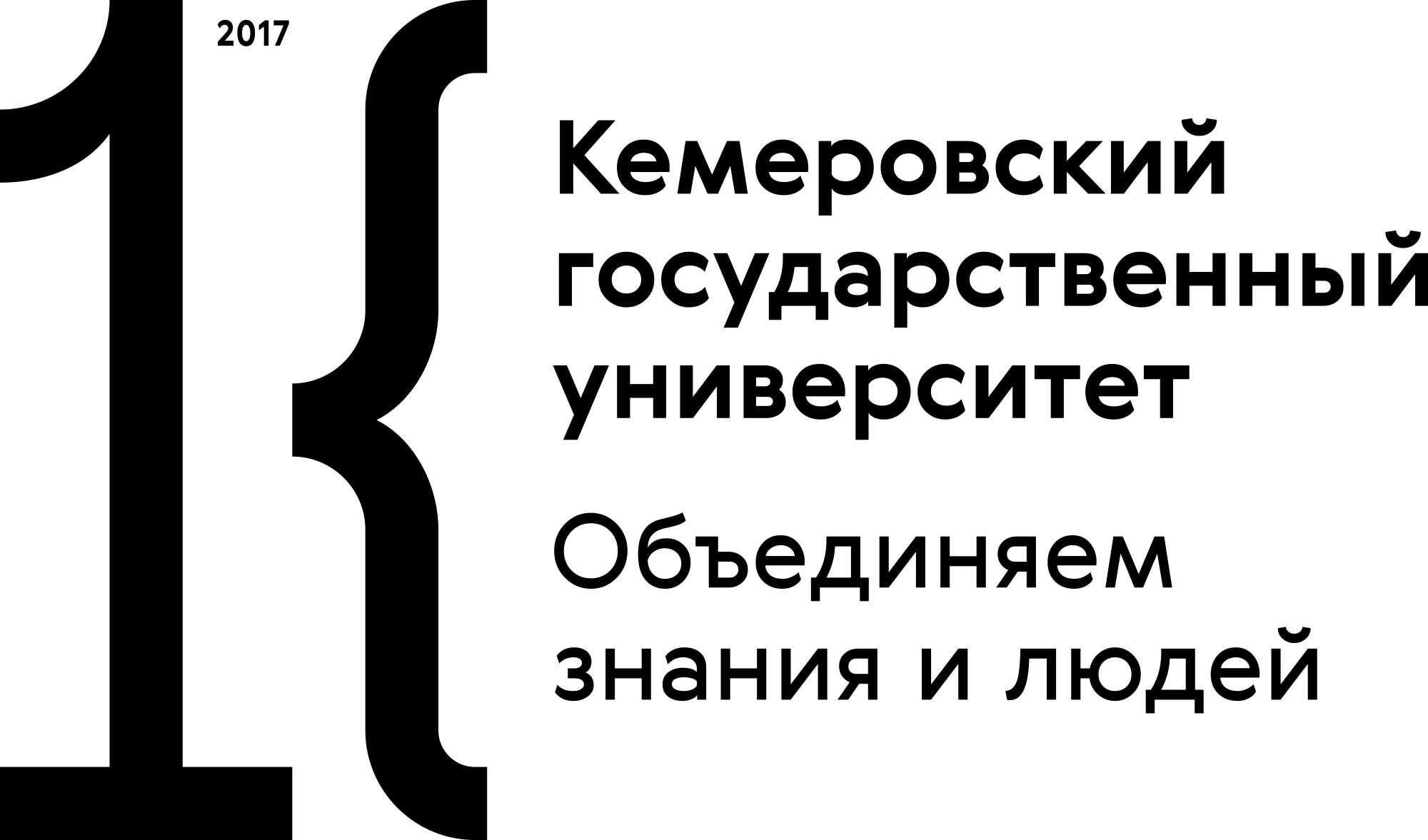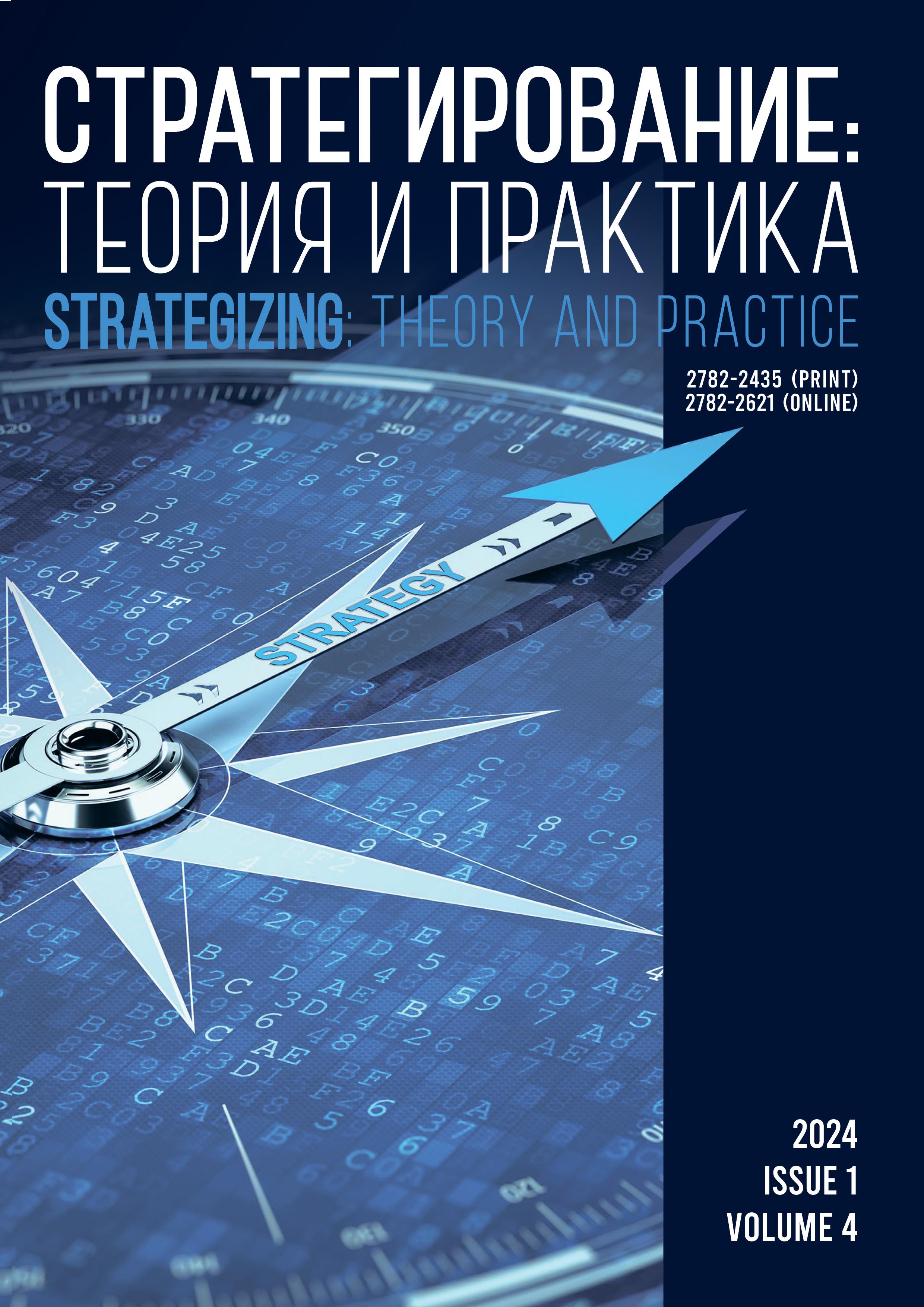Moscow, Moscow, Russian Federation
Cairo, Egypt
In 2024, Russia chairs the BRICS, having defined its global strategy as “strengthening multilateralism for equitable global development and security”. According to the methodology developed by Prof. V.L. Kvint, the global strategy depends on the relevant international, national, and corporate strategies of companies from the BRICS countries. Data economy uses algorithms for data processing and analysis, including AI solutions. Prof. V.L. Kvint defines the strategy as a combination of wisdom, a correct attack vector, and an adequate assessment of resources. Prof. A.A. Romanov and Prof. V.V. Kondratiev used Model-Based Systems Engineering 2.0 to adapt Prof. L.A. Bakhvalov’s methodology of system modeling to the modern conditions. All these principles can yield a new approach to multi-criteria modeling of related cross-country and cross-industry corporate strategies, especially if facilitated by the digital twin method and the interoperability policy. The major construction industry is high on the BRICS agenda in terms of large infrastructure and industrial facilities. Therefore, Model-Based Systems Engineering 2.0 provides good prospects for development strategy modeling.
strategizing, model-based systems engineering, coordination of economic activities, cross-industry and cross-country cooperation, digital twin, interoperability, artificial intelligence algorithms, alliance
1. Bakhvalov LA. Modelirovanie system [System modeling]. Moscow: Moscow State Mining University; 2006. 294 p. (In Russ.)
2. Golubev SI. Upravlenie protsessom prinyatiya resheniy na ehtape oblikovogo proektirovaniya perspektivnykh ZUR v interesakh povysheniya ikh konkurentosposobnosti [Managing the decision-making process at the stage of external design of promising zones of advanced development in the interests of increasing their competitiveness]. Cand. eng. sci. diss. Moscow: Moscow Aviation Institute; 2017. 106 p. (In Russ.)
3. Kalinin VS. Strategizing methodology during the transformation of innovative industrial clusters. Strategizing: Theory and Practice. 2023;3(2):245-260. (In Russ.) https://doi.org/10.21603/2782-2435-2023-3-2-245-260
4. Kvint VL. The concept of strategizing. Vol. I. St. Petersburg: NWIM RANEPA; 2019. 132 p. (In Russ.)
5. Kvint VL. Global emerging market: Strategic management and economics. Moscow: Biznes Atlas; 2012. 627 p. (In Russ.)
6. Kvint VL, Khvorostyanaya AS, Sasaev NI. Advanced technologies in strategizing. Economics and Management. 2020;26(11):1170-1179. (In Russ.) https://doi.org/10.35854/1998-1627-2020-11-1170-1179
7. Borovkov AI, Burdakov SF, Klyavin OI, Melʹnikova MP, Mikhaylov AA, Nemov AS, et al. Kompʹyuternyy inzhiniring [Computer engineering]. St. Petersburg: Politechnical University; 2012. 93 p. (In Russ.)
8. Kondratʹev VV. Modelʹno-orientirovannyy sistemnyy inzhiniring 2.0 [Model-Based Systems Engineering 2.0]. Moscow: MFTI; 2021. (In Russ.)
9. Kondratiev VV, Tishchenko EB. Architectural engineering of hybrid models incorporating digital twins and machine learning. Economic Strategies. 2023;25(5):94-99. (In Russ.)
10. Kondratʹev VV, Tishchenko EB. Strategiya poshagovogo rasshireniya sistemnykh instrumentov tsifrovogo inzhiniringa s iskusstvennym intellektom [Strategy for step-by-step expansion of digital engineering system tools with artificial intelligence]. Economic Strategies. 2024;192(6). (In Russ.)
11. Kouz R. Firma, rynok i parvo [Firms, market, and law]. Moscow: Novoe izdatelʹstvo; 2007. 221 p. (In Russ.)
12. Makarov VL, Bakhtizin AR, Sushko ED. The national strategic power, international trade, and national economic success in an unstable world. Strategizing: Theory and Practice. 2023;3(3):277-297. (In Russ.) https://doi.org/10.21603/2782-2435-2023-3-3-277-297
13. Semin AN, Tishchenko EB, Kislitsky MM, Kurdyumov AV. Development of methodological provisions of project management in the field of ensuring technological sovereignty of the agro-industrial complex. Fundamental and Applied Research Studies of the Economics Cooperative Sector. 2022;(4):3-10. (In Russ.)
14. Romanov AA. Prikladnoy sistemnyy inzhiniring [Applied systems engineering]. Moscow: Fizmatlit; 2015. 555 p. (In Russ.)
15. Kvint VL, Novikova IV, Alimuradov MK, Sasaev NI. Strategizing the national economy during a period of burgeoning technological sovereignty. Administrative Consulting. 2022;165(9):57-67. (In Russ.) https://doi.org/10.22394/1726-1139-2022-9-57-67
16. Tishchenko EB. “Umnyy” putʹ k pobede [A smart way to victory]. Atomnyy ehkspert [Atomic Expert]. 2018;66(5):4-5. (In Russ.)
17. Tishchenko EB. “Umnyy” putʹ k pobede [A smart way to victory]. Stroitelʹstvo v atomnoy otrasli [Construction in the Nuclear Industry]. 2018;(1):12-13. (In Russ.)
18. Tishchenko EB, Slavyantsev MV. Strategizing the interoperability between scientific thought centers in Russia and Africa. Strategizing: Theory and Practice. 2023;3(4):441-453. (In Russ.) https://doi.org/10.21603/2782-2435-2023-3-4-441-453
19. Shcherbakov NB. Preimushchestva primeneniya alʹyansov pri realizatsii proektov kapitalʹnogo stroitelʹstva. Rezulʹtaty adaptatsii kontraktnoy formy FAC-1 k rossiyskomu zakonodatelʹstvu [Advantages of using alliances in the implementation of capital construction projects. Adapting the FAC-1 contract form to Russian legislation]. Doklad na Ezhegodnoy otraslevoy konferentsii predstaviteley stroitelʹnogo kompleksa atomnoy otrasli [Annual Industry Conference of Representatives of the Nuclear Industry Construction Complex]. 2019. (In Russ.)
20. Arista R, Zheng X, Lu J, Mas F. An Ontology-based Engineering system to support aircraft manufacturing system design. Journal of Manufacturing Systems. 2023;68:270-288. https://doi.org/10.1016/j.jmsy.2023.02.012
21. Biyase M, Rooderick S. Determinants of FDI in BRICS countries: Panel data approach. Studia Universitatis Babes-Bolyai Oeconomica. 2018;63(2):35-48. https://doi.org/10.2478/subboec-2018-0007
22. Braga JP, de Conti B, Magacho G. The New Development Bank (NDB) as a mission-oriented institution for just ecological transitions: A case study approach to BRICS sustainable infrastructure investment. Revista Tempo do Mundo. 2022;(29):139-164. https://doi.org/10.38116/rtm29art5
23. Chami M, Bruel J-M. A survey on MBSE adoption challenges. The Systems Engineering Conference of the Europe, Middle-East and Africa; 2018; Berlin. Berlin; 2018. p. 1-15.
24. Bolshakov N, Badenko V, Yadykin V, Tishchenko E, Rakova X, Mohireva A, et al. Cross-industry principles for digital representations of complex technical systems in the context of the MBSE approach: A review. Applied Sciences. 2023;13(10). https://doi.org/10.3390/app13106225
25. Sousa B, Arieiro M, Pereira V, Correia J, Lourenço N, Cruz T. ELEGANT: Security of critical infrastructures with digital twins. IEEE Access. 2021;9:107574-107588. https://doi.org/10.1109/ACCESS.2021.3100708
26. Kankisingi G, Isheloke BE. A trajectory of innovation outputs among the BRICS countries: Critical perspectives of Brazil, Russia, India, China, and South Africa. In: Isheloke BE, editor. BRICS and economic development: A multidisciplinary perspective. IOR International Press; 2020. pp. 14-30.
27. Lesame Z. Technology transfer and business partnerships in BRICS: Development, integration and industrialization. Mediterranean Journal of Social Sciences. 2014;5(7). https://doi.org/10.5901/mjss.2014.v5n7p284
28. Maheshwari A. Industrial adoption of model-based systems engineering: Challenges and strategies. Master aero. and astro. sci. thesis. 2015.
29. Miller R. The role of machine learning and artificial intelligence in strategic management. https://doi.org/10.2139/ssrn.4392353
30. Mosey D. How does the FAC-1 framework alliance contract operate? In: Mosey D, editor. Collaborative construction procurement and improved value. John Wiley & Sons; 2019. pp. 187-209. https://doi.org/10.1002/9781119151951.ch10
31. Qureshi Z. The global infrastructure challenge and the role of G20 and BRICS. International Organisations Research Journal. 2017;12(2):164-193. https://doi.org/10.17323/1996-7845-2017-02-164
32. Styles G, Kalawsky RS. Research top challenges for MBSE in Industry 4.0 and IoT - Workshop Report. 2015. https://doi.org/10.13140/RG.2.1.4556.7767
33. Terron JF. BRICS leaders meeting: Partnership for the strengthening of science, technology and innovation. São Paulo; 2019.






